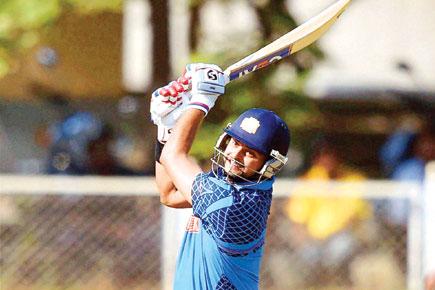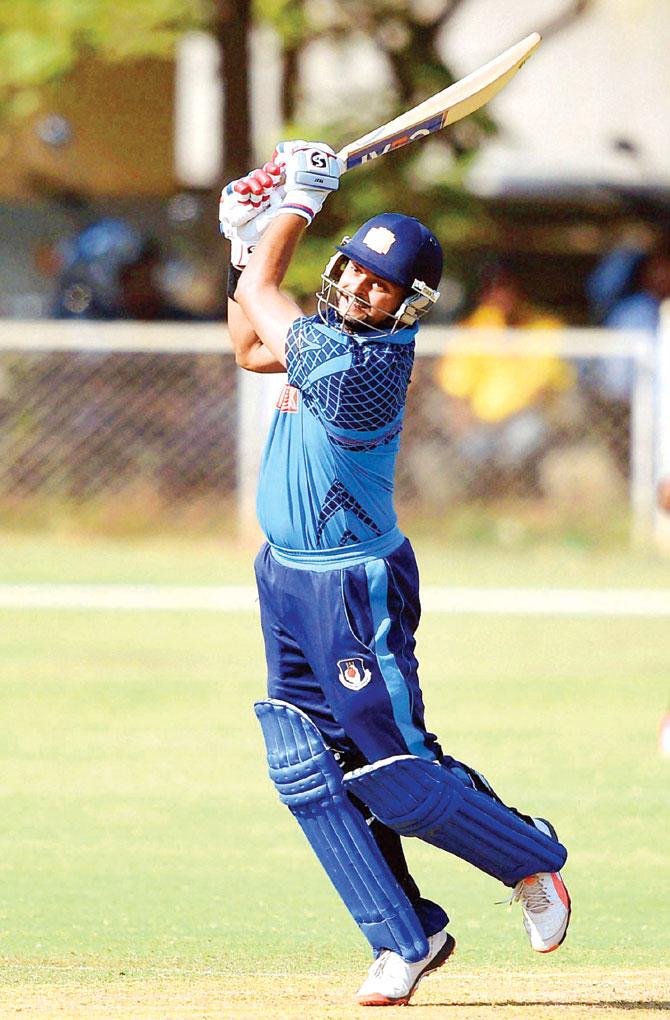With a third straight loss at Melbourne, India lost their fourth consecutive series under Dhoni; Raina is not just a good finisher and a gun fielder, but could also be a handy sixth bowling option, writes Aakash Chopra

Uttar Pradesh skipper Suresh Raina during the Syed Mushtaq Ali Twenty20 match against Gujarat at Mumbai Cricket Association's Bandra-Kurla Complex ground last week
With the third straight loss in Melbourne, India lost their fourth consecutive series under Mahendra Singh Dhoni. The last series that India won under him was at home against a weak West Indian team in 2014. There was a time when Dhoni couldn't put a foot wrong but now, whatever he does, backfires. Let's try and examine what has gone wrong in Australia before delving deeper into the issue.
ADVERTISEMENT

Uttar Pradesh skipper Suresh Raina during the Syed Mushtaq Ali Twenty20 match against Gujarat at Mumbai Cricket Association's Bandra-Kurla Complex ground last week. Pic/PTI
Bowling woes
Bhuvneshwar, Ishant, Umesh, Jadeja and Ashwin made up for India's bowling unit during the Champions Trophy winning campaign in 2013. Replace Shami with Ishant and you would get India's bowling unit during the World Cup in which India reached the semi-finals. So, how did the bowling unit that performed reasonably well in the past become so pedestrian? Well, the pitches in England were unusually dry and hence assisted Indian bowlers, and the pitches in the World Cup were also a little tired because the tournament was held at the backend of a long Australian summer.
By now, it's quite evident that Indian bowlers need some assistance from the surface to restrict a decent batting line-up, and the pitches prepared for this ODI series are anything but bowler-friendly. Flat pitches dictate that the bowlers do something spectacular in the air (be it the extra pace-swing for faster men or drift-dip for spinners) and, unfortunately, there isn't enough class in this bowling unit.
Batting blues
While it is indeed fair to blame the bowling unit for their inability to defend 300+ scores, it'll be foolish to ignore where the batting faltered too. If your strength is batting and you're playing on batting-beauties, there are only two ways to win — 1. Bowl first and chase a slightly above-par score, or 2. Bat first and score 25-30 runs above par, for your bowlers would need the scoreboard pressure as an extra bowler. Dhoni won two tosses but elected to bat first on both occasions and while 308 and 309 were big scores, they weren't 25-30 runs above par.
The Indian bowling isn't equipped to defend par scores on good pitches and it showed. In the third ODI in Melbourne, India did score 15 above par and therefore, for the first time in the series India came close to winning. It seems that Indian batting hasn't got used to the absence of a batting power-play, for they aren't accelerating enough between the 31st and 40th over.
Thus far, India has scored 67, 67 and 60 in this period and that's unacceptable if you've gone at around five runs-per-over for the first 30 overs and have eight-nine wickets in hand. The Indian batsmen must address this issue, for they're leaving too much to do in the last 10 overs.
Fielding lapses
If you have a weak bowling attack and if your batsmen haven't scored 25-30 above par, your fielding unit must contribute heavily. Unfortunately, the Indian fielding's worst hour has also come at a time when the bowling is struggling badly. In the first three matches, India has missed at least six-seven catches and almost that many opportunities to run the Australian batsmen out. It's not that this Indian team is full of liabilities on the field, for most of them are as good as you'd get at this level. While it's a minor blip, it has played a pivotal role in India's fortunes.
Tricky selection
Last but not least, the team selection hasn't given enough maneuverability with regards to the personnel. Raina's absence is sorely felt because he's not just a good finisher and a gun fielder but could also be a handy sixth bowling option. Dhoni was forced to play both Mann and Dhawan the moment he decided to drop Ashwin. Also, the lack of batting resources (India picked only five proper batsmen in the squad) has also meant that Dhawan can't be dropped in spite of his obvious lack of form. Now that India has already lost the series, it would be worth trying out different things. There's a strong case to try either Rahane or Pandey as an opener in place of Shikhar and also give Axar Patel an opportunity in the remaining two games.
 Subscribe today by clicking the link and stay updated with the latest news!" Click here!
Subscribe today by clicking the link and stay updated with the latest news!" Click here!







